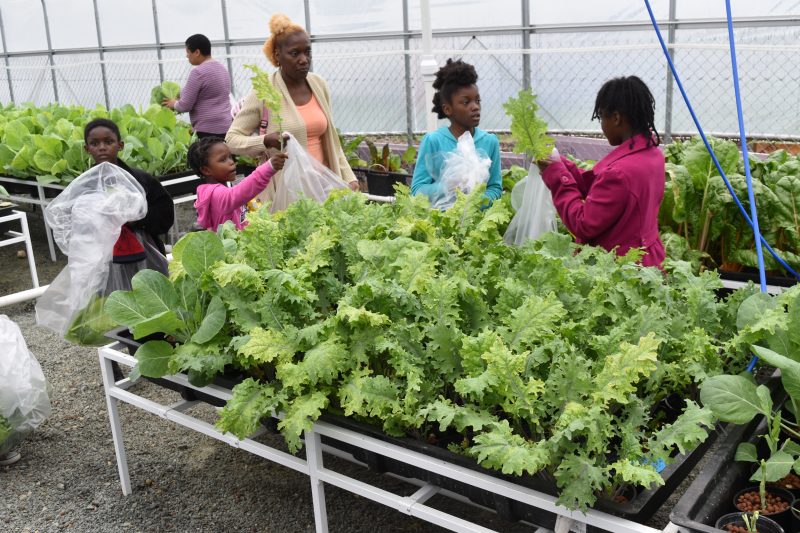

Academic offerings include 82 degree programs and more than 40 workforce credentials


Locating fresh fruit and vegetables is something most take for granted unless you live in what has been described as an urban food desert, where there is less access to healthy foods. The University of the District of Columbia is addressing the problem through the Urban Food Hubs in the College of Agriculture, Urban Sustainability, and Environmental Sciences (CAUSES).
The Urban Food Hubs seek to improve the quality of life and economic opportunity through a comprehensive urban food system that meets the needs of underserved neighborhoods lacking access to fresh food.
The four components of the UDC Urban Food Hubs are: food production, food preparation, food distribution, and waste and water recovery. These are designed to establish high efficiency urban food production sites such as commercial kitchens to improve nutritional health and add value by turning produce into food products, and green infrastructure that remediates urban soils and improves water use efficiency.
Each Urban Food Hub is a business incubator which can create jobs and address health disparities; as well as focus on economic, social, and environmental issues.
In 2011, UDC formed CAUSES to reaffirm its urban land-grant mission, and to bring the university’s land-grant programs into closer alignment with its academic programs. CAUSES focuses on urban agriculture, urban sustainability, and resilience. The college offers academic programs in architecture, health education, nursing, nutrition and dietetics, urban sustainability, urban agriculture, and water resources management.
CAUSES Dean Dr. Sabine O’Hara and her team developed the Urban Food Hubs, which is changing the lives of students, families and entrepreneurs. The Hubs offer something for everyone including community training and workshops, certificate programs: as well as access to UDC’s undergraduate programs, master’s in water resource, urban sustainability and architecture and a new Ph.D. program in urban leadership and entrepreneurship.
Students from a wide variety of programs in the university volunteer, while others have paid internships and receive stipends for conducting research. The program has won awards and has been contacted for replication in other cities.
“For the students, it provides experiential learning,” Dr. O’Hara said. “They can work on real life opportunities to address food production in urban areas including food security to green infrastructure.”
“We try to be as responsive as we can to the neighborhoods. A lot depends on the neighborhood steering committee. We hope that people will continue to be engaged.”
CAUSES’ Urban Food Hub model addresses what the U.S. Department of Agriculture defines as food insecurity for areas where high quality food is unavailable, specifically fresh fruits and vegetables in low-income communities.
Among the damaging effects of food insecurity on children are impaired cognitive development, reduced school readiness, lower educational attainments, and slower physical, mental, and social development.
Funding for the Urban Food Hubs comes from a sustainable development grant of the District of Columbia, from the Anacostia Economic Development Corporation, and from the University of the District of Columbia’s own capital funds, as well as corporate donors.
The Urban Food Hubs are changing lives through improved food access, health, and economic development in underserved neighborhoods in the nation’s capital.
